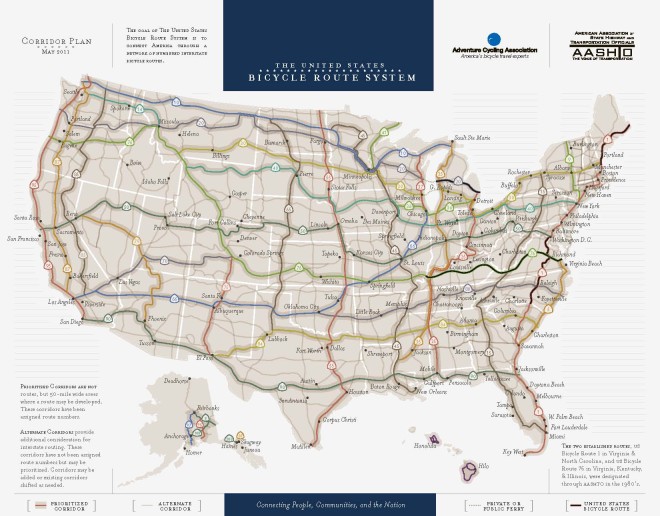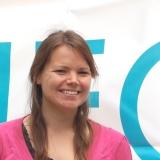
Velo-city Vancouver: European Cycling Culture seen through North American eyes
Velo-city Global Vancouver is shaping up to be a big event. Their website is now live, and the conference is seeking academic papers on cycling. ECF staff member, Amanda Winter, explains what it means to have a cycling conference come to North America.
Any article containing “North America,” “Europe” and “cycling” will largely conclude in a comparison to show Europe’s utopiancycling atmosphere versus North America’s lack thereof. This article will not propose this, mainly because 1. Each city has its own recipe; there is not one common urban planning rule book or cookie cutter approach for all. 2. As the environment does not function around national borders; we are all in this global green fight together, the time is now to cooperate and learn from each other.
Maybe we should think of Europe and North America differently, like North America is Europe’s little sister, younger, more careless, the kind that steals your favorite clothes and eats the last cookie without offering it to you. They like taking the easy way out and changing their behavior is extremely difficult, unless ‘all the cool kids are doing it.’ Let’s be that annoyingly functional family and inspire each other. Let’s have a family meal and share our recipes. Velo-city Global takes inspirational people at an international level, creating a global family not only to help you reach your goals, but to set new ones and step out of your box, try something on the menu you never tried before.
Goals, Big Goals
At first I thought, wow, now that’s ambition: Vancouver wants to be the greenest city in the world by 2020. Then, I read that North Vancouver has an impressive 100 year sustainability plan. As the greenest city in North America, Vancouver could not be more ready to host an event like Velo-city Global 2012. Cycling in Vancouver is improving; the city boasts over 400 km of bike lanes, and a 4-10% modal share (depending on neighborhood). The success of Velo-city Seville shows the depths of such a conference, participants learned about bikes in Zambia and witnessed the establishment of an important policy document, the Charter of Seville.
Worried that a conference in North America about cycling would be a lost cause?
• In a recent poll, 52% of Americans said they want to bike more than they do now.
• “I want the recipe” professed urban mobility extraordinaire Mikael Colville-Andersen about another Canadian city,Montreal.
• The Rails to Trails Conservancy has 1,683 open rail-trails for a total of 19,872 miles, with over 700 active projects for an additional 9,000 miles. Just one of their projects, The Great Alleghany passage (runs from PA to MD) sees over $40 million in direct spending from users of the trail.
Americans are rethinking maps (not based on distance, but based on carbon footprint and time required for travel) anddocumenting the emerging cycling cities. Below is a proposed plan for a national cycle route system.
Getting Personal
I was asked to write this article utilizing my American perspective. Here are the stories that statistics don’t show you, the inside scoop. My uncle, a life time resident of Lebanon, Pennsylvania, commutes by bicycle every day to work. He “simply enjoys it and the cost, health and environmental benefits are a great bonus” and thinks that people would cycle more if they were exposed to it. I expect that is not astonishing to you, but picture a poorly planned, run down city where the term alternative transportation sparks images of horses and buggies. This is a good sign.
My younger cousin, a Nebraska native, whom several years ago, was making demands to her father regarding her dream car for the day she turned 16. Recently I asked her about her transport plans as her 16th birthday is approaching. My faith was restored in humanity in her answer: “I don’t really want a car; they are too expensive and seem like a pain. I plan to take public transport but I wish it was easier to bike around.” This is a good sign. And finally my aunt, a true citizen of the world and for a few years a cycle chic Copenhagener told me she “cycled to work every day, regardless of weather, because that’s just what you do in Copenhagen.” It really took me a while to grasp the concept, as I spent the last few years living in Boston, where drivers are known for their complete disregard and cyclists are thought to be suicidal. That is until you become one, or it becomes you…
That’s me, who is not only celebrating my third year anniversary of freedom (car free) but also just convinced you to attend Velo-city Vancouver 2012. Go there, meet inspirational people who will give you enough hope to last until the next Velo-city conference and inspire others with your inside scoop. It’s time for the oddballs of the family to be the car drivers.
Amanda Winter is the current Communications Assistant at ECF. She is from the US and is currently in a Master’s Programme, studying International Political Economy at the University of Kent’s Brussels School of International Studies.
Contact the author
Recent news!
Upcoming events
Contact Us
Avenue des Arts, 7-8
Postal address: Rue de la Charité, 22
1210 Brussels, Belgium












